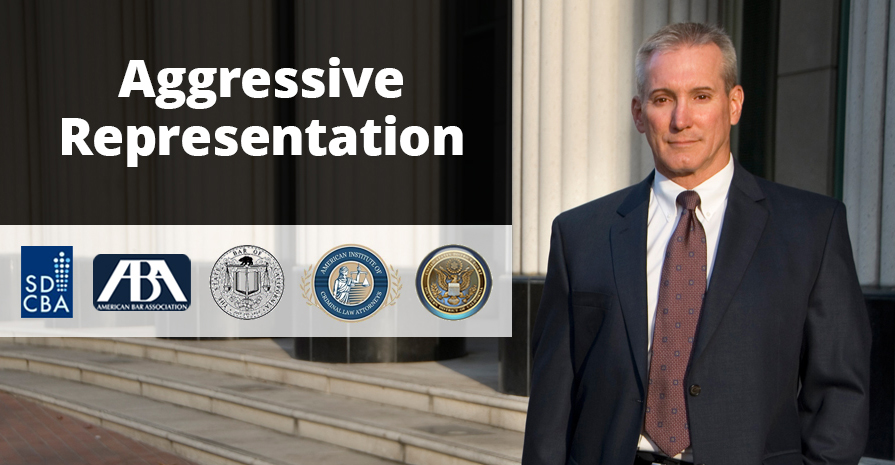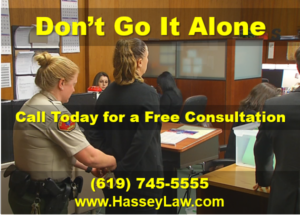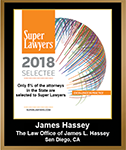|
Do You Have a Warrant? |
Do You Have a Warrant?Do you Have an Active Warrant?
Information on active Federal warrants can be found HERE. Information on local San Diego warrants are usually listed on the San Diego Sherriff’s website. Search for local San Diego active warrants HERE Types of Warrants in San Diego There are generally 3 types of warrants, and each needs probable cause to be issued.
SEARCH warrant Basically, the 4th Amendment to the Constitution guards against unreasonable searches (and seizures) without a warrant supported by probable cause. The Supreme Court has carved out a series of exceptions, including (but not limited to): consent searches; searches of motor vehicles (depending on the type of stop); evidence in plain view, border searches, and where there is an exigent circumstance (as long as the exigency is in conjunction with probable cause). Exclusionary rule One way our courts protect our 4th Amendment rights and keep the Search Warrant requirement in-force is the exclusionary rule making evidence deemed fruit of the poisonous tree inadmissible in court against the defendant. However, some Supreme Court cases over the years have carved out exceptions which may allow evidence to be admitted. Although a search warrant does not necessarily put you at risk of being immediately arrested, this may depend on what the outcome of what is found during the search. Validity of a Search Warrant Generally a valid search warrant must meet 4 requirements:
Challenging the validity of a Search Warrant Your situation is likely unique and challenging Search warrants is very difficult. Did the search involve your house, your automobile or your person? Was it someone else’s, or ‘your’ property that was seized? Were you asked for permission for the search? Did you make some kind of body motion or reply verbally giving express or implied consent? There is ample case-law governing the validity of search warrants. Call the Law Office of James Hassey today at (619) 745-5555 so we can answer your questions. BENCH warrant – Understanding California Penal Code §978.5 First, a ‘bench’ warrant is similar to an active ‘arrest’ warrant. In San Diego failure to appear in court is governed by California Penal Code §978.5. You can be arrested anytime, anywhere. If you’re pulled over for a traffic infraction, you can be arrested on the spot, and your car towed and impounded. If law enforcement locates you at work and arrests you, this could not only immediately affect your work status, but rumors can spread like wild-fire, and people love to embellish. A bench warrant for the persons arrest is usually issued when law-enforcement or the court has ordered an individual to not do something, or to do something (i.e. – appear in court, take DUI classes, pay a fine, etc.) and the person so ordered has not complied. Probable cause for the warrant is provided by the proof the defendant failed to follow the court’s order. In order to be convicted for violation of CPC §978.5 the prosecution must prove beyond a reasonable doubt:
Do I need to personally appear in court to address my Bench warrant? In short, if a Misdemeanor offense = No, if a Felony/DV = Yes. If the underlying case your bench-warrant is based on is a Misdemeanor, an attorney may go to court and appear on your behalf per California Penal Code §977. If the underlying case is a Felony, you must be personally present. However, personal presence does not necessarily mean you have to possibly incriminate yourself by personally answering questions from the Judge or personally speaking with the prosecutor (City Attorney or District Attorney). Do You Need an Attorney to Clear/Recall a Bench Warrant?
Briefly, no, you can go it alone, but for multiple reasons it’s not recommended. Although it is your Constitutional Right to represent yourself, it is not recommended for multiple reasons. First, it requires multiple trips into uncertain territory where an arrest on the warrant could easily occur. If you yourself (without the help of an attorney) want to try and get a warrant recalled, you’ll have to get the warrant recall matter on the court’s calendar. To do this the person with the outstanding warrant must venture into the courthouse (with many law-enforcement officers in/nearby); go through the security check-point at the front door; go to the admin office, provide your information including: Name; Date of Birth; and possibly the Case Number. The clerk will then look up your information and the case info on the system, and if s/he does not notify the deputies in the courthouse to come arrest you on the outstanding warrant, the matter will then be set for a future date (appointment to appear in front of the Judge in the courtroom). Depending on how busy the court’s calendar is, this may be anywhere from 1-week to multiple weeks in the future. Then, on the future date, you would have to go back into the courthouse through security, check-in at the admin. office again so they can send your file into the courtroom, then you would go to the courtroom the clerk is sending your file to, where the matter will be heard by the Judge. A reasonable explanation would have to be provided for why the court’s order(s) were not complied with. Will the Prosecutor Oppose My Request? Likely Yes. It is very seldom the prosecuting attorney (Deputy City Attorney / District Attorney) does not propose some argument to the court. The prosecuting attorney (deputy City Attorney / District Attorney) will likely contest the request to recall the warrant. S/he may argue that you cannot be trusted to show up to court when required. Opposing counsel will likely argue the only way to ensure you satisfy the court’s requirements (such as appear in court when required, take the required classes, etc.), is if you’re taken into custody, bail out, then have the downside of owing the full bail amount if you don’t follow the court’s orders. The Judge will then decide. If your request is denied, you will likely be handcuffed and taken into custody on the spot. Or the Judge may decide to recall the warrant and re-instate you/your case. If the Judge does decide to recall the warrant, although the existing warrant is nullified and declared invalid by the court, you likely will have to state/admit on the record that you violated a term of your probation. Can I be arrested while trying to clear my Bench warrant? Whether the person will be arrested during any of the times while being at the courthouse can depend on a few factors including, but not limited to, the issue(s) of the underlying case, whether it is a misdemeanor or felony, and the discretion of the clerk. I’ve been in the courthouse and seen it happen multiple times where, a person with an outstanding warrant makes it past the officers manning the front-door security checkpoint, then when they go to the admin office, and after giving their information to the person at the admin. window, the clerk notifies law-enforcement in the courthouse. And without the person noticing it, a few officers inconspicuously walk into the room and take strategic positions behind/around the person, then arrest him/her on the spot. Although this does not happen ‘all’ of the time, it does happen and is a risk. An experienced warrant recall attorney can be very valuable. If your underlying case is a Misdemeanor, your attorney can handle everything for you per California Penal Code §977 and you don’t have to go to court at all (unless the/a previous Judge for some reason has required your personal appearance). If the underlying case is a Felony, you will have to personally join your attorney for the scheduled court appearance. Additionally, your attorney can act as a buffer and protector of you/your rights. Also, an experienced attorney will likely know the explanations that usually do not work, and those that are usually accepted by the court. Lastly, because the courts are aware that people/clients are likely paying attorneys for the attorney’s time to be in the courts on behalf of their clients, an attorney can take advantage of special advantages including, the “attorney window”, close-by parking, and courts tend to fast-track attorneys through the system getting them in-and-out faster, your situation . Citizens without attorneys cannot benefit from these advantages. The whole process of you, personally without an attorney, getting your bench-warrant recalled may take approximately 6 to 10 hours if not more. Even if the Judge decides not to recall your warrant and requires you to be taken into custody with bail, an experienced warrant recall attorney can be very valuable. An experienced attorney can make an effective presentation to the court and provide proper case-law, that can give the Judge the grounds to deviate from the existing bail-schedule and set bail as low as possible. The facts of your situation are likely unique, call the Law Office of James Hassey today at (619) 745-5555 so we can answer your questions and help you. |
|












